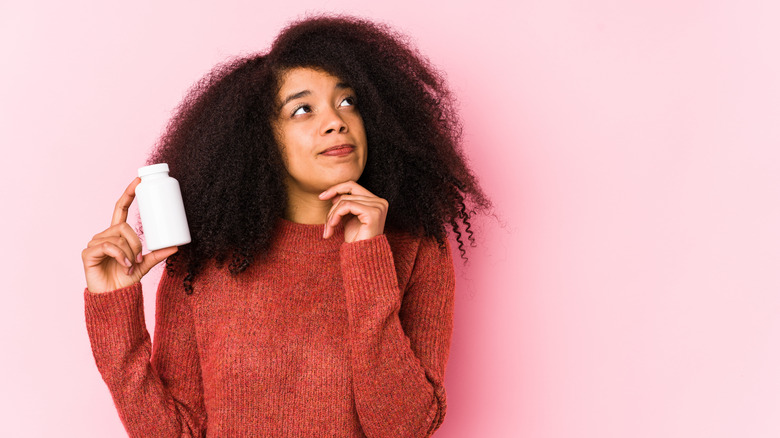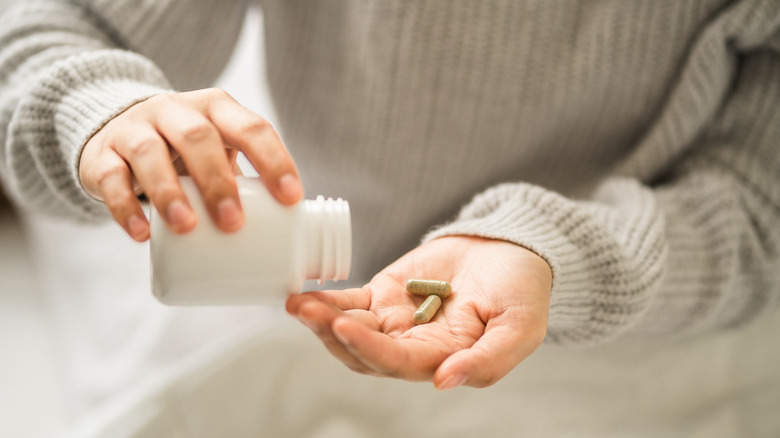Does Vitamin E Thin Your Blood?
Vitamin supplements are easily accessible in stores and online markets. According to the Council for Responsible Nutrition (CRN), 77 percent of American adults take dietary supplements, and people between the ages of 35 to 54 have the highest usage of vitamins at 81 percent.
A vitamin is an essential nutrient made of carbon that the body needs to function, according to Medical News Today. Currently, there are 13 known vitamins. There are two types of vitamins, water-soluble and fat-soluble. Water-soluble vitamins need to be replenished more frequently since they cannot be stored in the body. Excess water-soluble vitamins leave the body through urine. On the other hand, fat-soluble vitamins can be stored in the body's fat tissues. Fat-soluble vitamins include vitamins A, D, E, and K.
Not having enough of a certain vitamin can lead to deficiencies that cause disease. However, having too much of a vitamin can be just as detrimental to your health, per Medical News Today.
Taking too much vitamin E can cause blood thinning
According to the Mayo Clinic, vitamin E is important for healthy blood, vision, brain cells, and a healthy reproductive system. Vitamin E also has antioxidant powers that fight harmful free radicals in the body. If you are consistently not getting your recommended 15 mg of vitamin E per day, it can cause vitamin E deficiency, which may lead to disease.
Vitamin E can be found in several food sources such as dairy, olive oil, almonds, and fortified cereals, and it can also be taken as a dietary supplement. Most people don't need vitamin E supplements, though, according to Mayo Clinic. Since vitamin E is stored in the body's fat cells, taking too much can cause vitamin E toxicity or overdose, per Healthline.
The highest amount of vitamin E an adult can consume without complications is 1,000 mg per day, according to the National Institutes of Health. Overdosing on vitamin E can cause the blood to become thin which can lead to serious health conditions such as stroke. Researchers have not discovered any harmful effects of getting vitamin E through food, but high doses of vitamin E supplements can cause issues with blood clotting and hemorrhaging.
Talk to your health care provider before taking a vitamin E supplement. Making changes to your diet may be the best and safest option.


